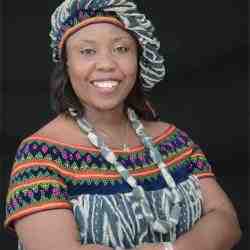Introduction
Uma Chatterjee is putting survivors of trafficking at the center of India’s anti-trafficking movement. She is catalyzing them to become first-generation leaders, entrepreneurs and policy advocates who change the narratives and practices of their sector. These ‘survivor-changemakers’ are setting up their own organizations, businesses, and advocacy platforms, from where they collaborate directly with governments, markets and society, as powerful representatives of their field. By doing so, they are building new livelihoods and laws that will restore their lost dreams, dignity, and citizenship.
The New Idea
Every year, more than 23,000 victims are rescued from trafficking in India. Ironically, this marks the start of their second cycle of entrapment. Rescued victims, mostly youth between the ages of 17-26, are holed up in custodial institutions or shelter homes for years, as they wait for a magisterial order for release. Most ‘victims’ don’t have any real decision-making in the design of their rehabilitation. Those in charge of their rehabilitation (including social workers and non-profit leaders) view survivors as silent beneficiaries, incapable of decision-making, and devoid of aspirations.
Uma is breaking this pattern. She is setting up new platforms of leadership and learning for young survivors who are rescued from different streams of trafficking – i.e., trafficking for sex work, forced labor, domestic servitude, adoption, and organ transplant. They collaborate to overcome stigma and become powerful for themselves, so that they can influence and change India’s anti-trafficking laws and practices.
Uma’s approach is three-pronged. First, she energizes survivors to build peer-support groups in communities that are hotspots of trafficking. These peer networks become the bedrock on which survivors support each other to build lives of purpose. Second, she equips them to take charge of their own rehabilitation, livelihoods, and citizenship. By doing so, survivors become their own North Stars. They shape their journeys on the vision that they have for their lives, rather than rehabilitation templates and protocols. They engage and advocate directly with the government and other stakeholders, rather than have social workers do so on their behalf. Third, Uma galvanizes survivor collectives from across India into a collective of collectives- ILFAT (Indian Leaders Forum Against Trafficking). This national platform for survivors is rich with membership from multiple and diverse survivor collectives. It collaborates with mainstream media, lawyers, and researchers to provide input on and pass laws and policies that honor the lived experience of survivors.
Uma’s three-pronged approach is enabling survivor collectives to place their voice, intel, and lived experience at the center of India’s anti-trafficking sector and shape a new narrative. Over five years, Uma and her team have facilitated 5000 survivors of trafficking to form and lead 26 collectives of their own. Uma is scaffolding these survivor groups and organizations with an enabling eco-system of grassroots non-profits. 13 partner organizations are replicating Uma’s model across 10 states.
Collaboration is key to Uma’s idea. With 2,500 members, ILFAT is working with media, academics, and experts to conduct policy research. Its members track the effectiveness of the government’s district-level Anti Human Trafficking Units (AHTUs). The goal of ILFAT is to pass India’s first broad-spectrum, anti-trafficking legislation – legislation that is inspired and influenced by the survivor community themselves.
The Problem
It is estimated that close to 8 million Indians live in conditions of modern slavery. A majority of this segment comprise children and young adults who are trafficked for sex work, forced labor, domestic servitude, and organ transplant. A small section of this community is rescued and rehabilitated. But they are failed by the system in multiple ways.
According to law, after their rescue, survivors are detained in custodial homes or shelters for a period of one to three years. During this period, they are entitled to services that address their trauma. Social workers are mandated to develop plans for their rehabilitation and livelihoods. But most survivors end up languishing in these centers for more than 7 years. For them, this period is akin to incarceration. Their mobility is restricted (they cannot leave the shelter premises without the permission of the Judicial Court). They have nominal control or opinion on their period of stay in the shelters. The system assumes them to be of diminished capacity with little or no ability to exercise choice for themselves.
The vocational training programs offered in the shelters are neither tuned to markets, jobs, or industry demands. They do not account for the age, education, interests, health, responsibilities, and liabilities of the survivors. Neither do they hold the promise of employment and reasonable incomes for survivors to support their families. Because skilling programs are not cognizant of the trauma, shame, and stigma embodied by the survivors, most are unlikely to get or hold down a job.
Not surprisingly, when survivors finally integrate back into their community, they find themselves in a worse situation than before. They realize that the chasm between them and their chance of a life of dignity has only widened. Most survivors return to their old channels of work. Many ends up becoming part of the criminal network of trafficking, thereby perpetuating the system.
The legal procedures also penalize the survivors, not the trafficker. The long tail of paperwork for victim compensation, and the process of convicting traffickers lead to more shame than benefit. As survivors navigate court rooms, they are equally punished by the biases and stigmatizing gaze of bureaucrats, elected representatives, medical officers, and police officers. The rate of acquittal of traffickers in India is as high as 83% (2018-19). Furthermore, less than one per cent of trafficking victims identified from 2010 to 2018 have received compensation so far . These statistics can be attributed to the limited awareness and training of rural and grassroots NGOs that provide survivors access to rehabilitation and legal services.
Traditional non-profits often fall into this protectionist or savior mentality. They often implement rehabilitation services ‘for survivors,’ instead of ‘with them.’ Most times, survivors are called upon by non-profits to play tokenistic roles in meetings and conferences. This approach only re-victimizes them. Over the year, several non-profits have set up survivor-collectives. But they remain fragmented and unable to build bridges with each other.
The Strategy
For Uma, survivors of trafficking are experts of their unique lived experience. By unlocking their potential, the anti-trafficking sector will only stand to benefit from survivor-centric and survivor-led innovations and narratives.
The first step in Uma’s strategy is to build survivor peer communities. In trafficking hot spots, Uma and her team facilitate survivors to set up peer groups as they re-enter the world of family, community, and work. Survivor-peer groups are force-multipliers in several ways. They enable members to break through their shared trauma, stigma, and shame. Survivors collaborate and strategize to take charge of their compensation and legal defense against traffickers. They make vital decisions about their education, skills, and employment through the facilitation of Sanjog. They receive and support newly-arrived peers. Taking responsibilities leads them to daily wins, failures, and learning. They augment their goal-setting, problem-solving, and stakeholder management capacities – all vital leadership skills that prepare them for larger sectoral roles.
A trauma-informed leadership training program fuels and sits at the heart of this model. The Me-We-Us Spiral Leadership Training methodology pioneered by Uma takes survivors into a deep immersion into their personhood, and then gives them the skills and tactics for personal resilience, community resilience, and transformational leadership. The training bolsters survivors to first heal as individuals and then to grow into collectives that are creative, courageous, and collaborative. It trains them to network, share narratives, advocate, and build alliances as the most powerful representatives of their sector. Survivors are also equipped with the tools and how-tos of strategy, fundraising, team building, to strengthen their organizations. To augment this intensive training, Uma and her team offer mentoring and coaching to survivor-changemakers.
The peer groups then go on to set up collectives and formal organizations. They develop the norms, roles, and activities of their entities, independently. For instance, the non-profit, Utthan, which has been incubated by Uma and her team, conducts workshops on victim compensation with stakeholders from government, civil society, and media. At these training sessions, survivors are the organizers, hosts, and principal presenters. The stakeholders join the meeting as participants and guests. This upending of roles is changing the perceptions about survivors—from resourceless victims to people who are powerful, assertive, creative, and resourceful. To share another illustration, when survivors take charge of their own victim compensation cases, the results are unprecedented. Some survivors have been able to unlock compensation of up to INR 20 Lakhs, a 100X increase from the standard compensation that victims tend to receive.
For Uma, citizenship and livelihoods with dignity are the two levers that can move local survivor organizations to the next level of change-making. Citizenship becomes real when survivors start to unlock the full slate of government schemes, entitlements, and social protection programs mandated for them. This process has opened up direct contact and dialogue between survivors and public officials. It has also led survivors to recognize that they are not just beneficiaries of government services. They are a citizen base that can audit, give feedback, and hold duty bearers accountable. Uma has put technology tools in the hands of survivor groups to audit and rate the performance of their local government and allied systems. The tool generates a score card of data generated by survivors on the responsiveness of the public systems to the survivor community. This ‘citizen data’ is used by survivors for advocacy with state and national governments, media, and other policy bodies.
As survivor collectives progress, their demand and ambition for non-traditional livelihoods grows. Through a unique, ‘trauma-informed’ livelihoods and entrepreneurship training program, Uma is opening the pathways for survivors to become entrepreneurs. She is giving them the knowledge and skills to engage confidently with markets, customers, finance, and regulators. For a community that has only witnessed a brutal and exploitative world of work, Uma’s approach enables survivors to see micro-businesses as a tool for self-reliance and empowerment. In the last three years, 200 women from 15 Self Help Groups have gone on to set up individual and group businesses. These first-generation women micro-entrepreneurs have forged a partnership with the State Rural Livelihoods Mission of West Bengal. They have received start up seed capital and small loans from local banks and organizations.
For Uma, the emergence of survivor-leaders cannot be possible without an enabling eco-system of community-based grassroots organizations. Sanjog’s 13 partners in trafficking hotbeds across 11 states build the ground for survivor-led groups to thrive. Uma and her team run parallel capacity-building, peer learning and cross-pollination programs for partner organizations. The non-profit partners are coached to be the ‘guide on the side’ for survivor collectives. They are trained to facilitate survivor organizations, while providing stimulus to local communities and stakeholders to become allies.
Even as Uma builds the eco-system on the ground, she is orienting the large global funders of anti-trafficking movements to embed the idea of survivor-leadership in all their programs. Eventually, all the strategy components stack up to the national survivor-led advocacy platform, ILFAT, which is working towards survivor-centric laws in the country. But noting that the passage of a law is unpredictable, it is equally important for Uma to seed, strengthen, and scale survivor-led organizations and businesses with partners across India over the next five years.
The Person
From a clinical psychologist to a transformational leadership coach for young survivors of trafficking - Uma’s story shares many common patterns with the leaders she has launched.
With her father serving in the army, Uma moved to multiple cities and towns in quick succession through her growing-up years. Despite the shock of being uprooted, and then having to quickly drop roots in a new place, young Uma never complained. But it left a deep void inside of her – a yearning for real friendships, life anchors, and relationships that would be enduring, long-term, and non-transactional.
College was a turning point in Uma’s life. She finally found ‘home’ in psychology – the subject of her choice. It gave her a new window to ‘find’ her own self. But as she stepped out of the safe army cantonments, Uma discovered how unsafe, violent, and traumatic life in a big city like Delhi could be. She experienced sexual assault in public places, including being physically molested, eve-teased, and stalked. When Uma reached out for support, she felt unheard and told to adjust. She kept quiet but deep-seated anger made its home inside of her. As a response, Uma volunteered extensively in local non-profits. She ran student clubs and initiated several college activities on issues of gender and violence.
Uma went on to build a successful career as a clinical psychologist. Yet the rootlessness of her childhood days kept her on the quest to find her own community. She set up counselling programs across schools – a new pathway for the education system in the mid-1990s. She then turned her attention to community-based healing for survivors of sexual assault. This eventually led her to a leadership role in an international organization that funded and facilitated rehabilitation programs for survivors of sex trafficking across South Asia.
One day, a conversation with a rescued sex worker stopped Uma in her tracks. Bilkis, a young woman, had been trafficked from Bangladesh to work in the brothels of Pune and Mumbai in India. She had been placed in an interim Mumbai shelter home before her return to her home. Uma asked Bilkis if she was excited to return home. Bilkis flatly responded that home, a brothel, or the shelter – all three for her were the same. All were spaces of stigma, shame, exploitation, and unfreedom for her.
Uma was shaken to the core. To validate what she had heard, she started having conversations with social workers. She asked them what they loved most about working with survivors of trafficking. The responses reinforced a protectionist mentality. A majority of the social workers saw survivors as beneficiaries of rehabilitation protocols and services. They said they found fulfilment in counselling the survivors to adjust to their families, even if that sometimes meant living with the same people who had sold them to traffickers. Voice, decision-making, freedom, dignity, citizenship of survivors – these themes found no place in Uma’s chats with social workers.
Uma realized that she had been complicit in deepening a custodial and non-empowering approach to rehabilitating survivors. Guilt and anger surged in her. She acknowledged that more than anything else, Bilkis and her tribe needed allies, facilitators, and champions, not saviors or heroes that would rescue and then counsel them to fit in. With this conviction, Uma founded Sanjog in 2012 with Roop Sen as the co-founder. In the following five years, Sanjog conducted evidence-based research with survivors, that led to the establishment of survivor collectives and ILFAT in 2017.




